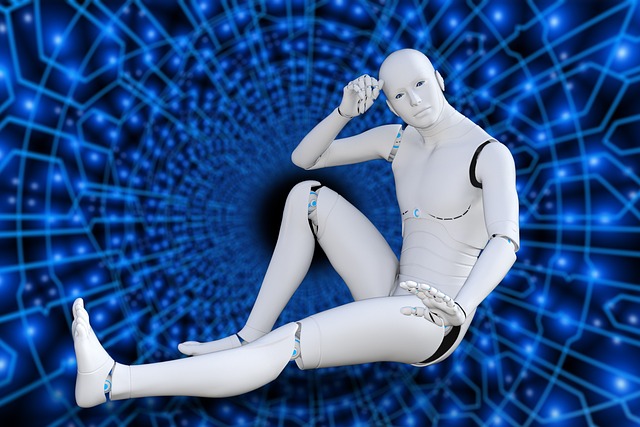# Unlocking the Potential of AI Technology: Innovations That Will Shape Our Future and Everyday Lives
Artificial Intelligence (AI) technology is not merely a buzzword; it is a transformative force that is reshaping various sectors and enhancing our everyday lives. As we delve into the intricacies of AI, it becomes evident that its innovations are poised to redefine how we interact with technology, work, and even perceive the world around us. This article explores three primary areas where AI is making significant strides: healthcare, education, and smart cities.
## Revolutionizing Healthcare with AI
In the realm of healthcare, AI is driving groundbreaking innovations that promise to enhance patient outcomes and streamline medical processes. One of the most notable advancements is in diagnostic accuracy. Algorithms powered by machine learning can analyze medical images with remarkable precision, often surpassing human radiologists in identifying conditions such as tumors or fractures. This capability not only speeds up the diagnostic process but also reduces the likelihood of human error, ultimately leading to earlier and more effective treatment options.
Moreover, AI is facilitating personalized medicine, a paradigm shift that tailors treatments to individual patients based on their genetic makeup and lifestyle factors. By analyzing vast datasets, AI systems can identify patterns and predict how different patients will respond to specific treatments. This approach not only enhances the effectiveness of therapies but also minimizes adverse effects, making healthcare more efficient and patient-centered.
Another area where AI is making a significant impact is in drug discovery. Traditional methods of developing new medications can take years and require substantial financial investment. However, AI algorithms can analyze existing compounds and predict their potential efficacy in treating various diseases, drastically reducing the time and cost associated with bringing new drugs to market. As a result, the pharmaceutical industry is increasingly adopting AI-driven approaches, promising a future where life-saving medications can be developed more rapidly and efficiently.
## Transforming Education Through Intelligent Learning
Education is another sector experiencing a profound transformation due to AI technology. Personalized learning experiences are becoming more prevalent, allowing students to engage with educational material that is tailored to their individual learning styles and paces. AI-powered platforms can assess a student’s strengths and weaknesses, adapting the curriculum accordingly to ensure optimal learning outcomes. This level of customization not only enhances student engagement but also helps educators identify areas where additional support may be required.
Furthermore, AI is facilitating the development of intelligent tutoring systems that provide real-time feedback and assistance to learners. These systems can simulate one-on-one tutoring experiences, offering explanations and resources that cater to the unique needs of each student. Such innovations are particularly beneficial in large classroom settings, where individual attention from teachers may be limited. By leveraging AI, educators can ensure that every student receives the support they need to succeed.
Additionally, the integration of AI in administrative tasks is freeing up educators to focus more on teaching and mentoring. From grading assignments to managing schedules, AI can automate many routine tasks, allowing teachers to dedicate more time to student interaction and curriculum development. This not only enhances the educational experience for students but also contributes to a more fulfilling professional environment for educators.
## Building Smart Cities for Sustainable Living
The concept of smart cities is gaining traction as urban areas grapple with challenges such as population growth, resource management, and environmental sustainability. AI technology is at the forefront of this movement, enabling cities to become more efficient and responsive to the needs of their residents. One of the key innovations in this area is the use of AI for traffic management. By analyzing real-time data from various sources, including traffic cameras and sensors, AI systems can optimize traffic flow, reduce congestion, and minimize travel times. This not only enhances the commuting experience but also contributes to lower emissions and improved air quality.
Moreover, AI is playing a crucial role in energy management within smart cities. Intelligent systems can analyze energy consumption patterns, predict demand, and optimize the distribution of resources. For instance, AI can facilitate the integration of renewable energy sources, ensuring that energy grids can adapt to fluctuations in supply and demand. This capability is essential for promoting sustainability and reducing reliance on fossil fuels.
Public safety is another area where AI is making a significant impact. Surveillance systems equipped with AI algorithms can detect unusual behavior or potential threats, allowing law enforcement agencies to respond more effectively. Predictive policing, which uses historical data to anticipate criminal activity, is also being explored, although it raises ethical considerations regarding privacy and bias that must be addressed.
## Conclusion: Embracing the Future of AI
As we stand on the brink of an AI-driven future, it is crucial to recognize the profound potential of this technology across various sectors. From revolutionizing healthcare to transforming education and building sustainable smart cities, AI is poised to enhance our everyday lives in ways we are only beginning to understand. However, with these advancements come responsibilities. Ethical considerations, data privacy, and the need for transparency in AI systems must be prioritized to ensure that the benefits of this technology are realized equitably.
In summary, unlocking the potential of AI technology requires a collaborative effort among stakeholders, including governments, businesses, and the public. By embracing innovation while addressing the challenges it presents, we can harness the power of AI to create a future that is not only technologically advanced but also inclusive and sustainable. The journey ahead may be complex, but the rewards promise to be transformative for individuals and society as a whole.











